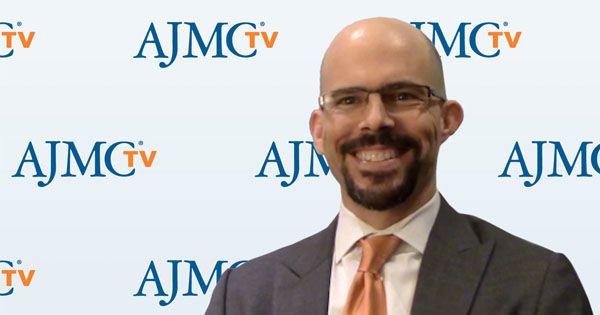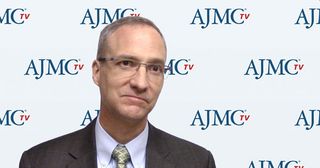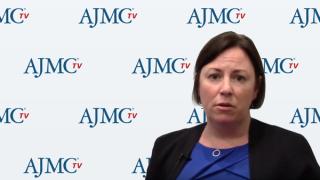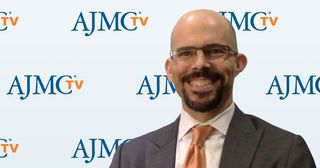
Oncology
Latest News
Latest Videos

CME Content
More News

Every week, The American Journal of Managed Care® recaps the top managed care news of the week, and you can now listen to it on our podcast, Managed Care Cast.

This week, the top managed care stories included President Donald Trump's plan to drive down drug prices; the FDA approved the first biosimilar of the year; a study found rapid uptake of PD-1 agents after FDA approval.

While immune checkpoint inhibitors significantly improve overall survival in both sexes, the magnitude of benefit is dependent on sex, according to new study findings.

Integrated care teams will create more value for the patient, but there are multiple challenges in the creation of these teams, said Mark Soberman, MD, MBA, FACS, former president of the Association of Community Cancer Centers.
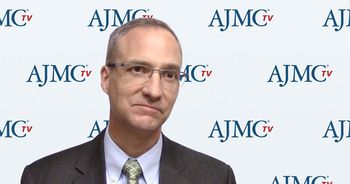
Creating integrated cancer care teams is part of a paradigm shift that requires thinking of care delivery in a different way, explained Thomas Asfeldt, MBA, RN, director of Outpatient Cancer Services at Sanford Cancer Center.

In the 4 months following their approvals, pembrolizumab and nivolumab reached more than 60% of eligible patients with melanoma, non-small cell lung cancer, and renal cell carcinoma.

An interdisciplinary approach to patient care is very important because the treatment of gynecologic cancers can be very complex, explained Oliver Dorigo, MD, PhD, associate professor, obstetrics and gynecology, Stanford University Medical Center.

We have to decide if we’re prepared to not cover low-value treatments as we shift to value-based care, said Robert Navarro, PharmD, clinical professor, College of Pharmacy, University of Florida.

The US Preventive Services Task Force (USPSTF) recommends that men aged 55 to 69 make their own decision on whether or not to be screened periodically for prostate cancer after they have had a conversation with their physician on potential benefits and harms.

There are 3 legislative priorities for the Community Oncology Alliance (COA) that keep the focus on the patient and ensure better care, explained Ted Okon, executive director of COA, at the 2018 Community Oncology Conference.

A new case study found that an acute myeloid leukemia patient has remained cancer free for 9 months following treatment with the chimeric antigen receptor (CAR) T-cell treatment, CYAD-01, and a bone marrow transplant.

The purpose of evidence-based guidelines is to reduce the level of variation, improve outcomes, and reduce costs, said Derek Raghavan, MD, PhD, FACP, FRACP, president, Carolinas HealthCare System's Levine Cancer Institute.

Aimee Tharaldson, PharmD, a senior clinical consultant in Emerging Therapeutics for Express Scripts, discusses specialty drugs that have recently been approved, and which we will likely see approved in the remainder of the year.

Sean C. Dowdy, MD, chair, division of gynecologic surgery, department of obstetrics and gynecology, Mayo Clinic, discusses identified factors that cause prolonged delays between discovering an improved treatment or practice and the application of it.

Every week, The American Journal of Managed Care® recaps the top managed care news of the week, and you can now listen to it on our podcast, Managed Care Cast.

This week, the top managed care stories included a report that insurance coverage gains are reversing; a deal to lower the cost of Praluent for Express Scripts members; findings that synthetic opioids are playing a bigger role in overdose deaths.

Funding is the biggest challenge scientists and clinical investigators face when trying to find successful therapies to treat advanced bladder cancer, explained Donna Hansel, MD, PhD, of University of California, San Diego, School of Medicine.

Coverage of our peer-reviewed research and news reporting in the healthcare and mainstream press.

Practices increasingly need to use technology to deliver care in an increasingly value-based world, said Charles Saunders, MD, CEO of Integra Connect.

Tisagenlecleucel, sold as Kymriah, has gained its second indication following the FDA's approval of the chimeric antigen receptor T-cell therapy for the treatment of adult patients with relapsed or refractory large B-cell lymphoma, the most common form of non-Hodgkin lymphoma.

The chimeric antigen receptor T-cell therapy tisagenlecleucel has been approved for a second type of blood cancer; the National Institutes of Health has started recruiting individuals for a database that will include data on more than 1 million people; Kansas’ request to impose a 3-year lifetime limit on Medicaid benefits is testing just how open the Trump administration is to allowing states flexibility.

The FDA and the FTC issued 13 warning letters Tuesday to manufacturers, distributors, and retailers for selling e-liquids used in e-cigarettes, or vaping devices, with labeling or advertising that bears stark resemblances to kid-friendly food products, such as juice boxes, candy, or cookies.

Communication is critical in providing integrated, comprehensive care, said Mark Soberman, MD, MBA, FACS, former president of the Association of Community Cancer Centers (ACCC).

CMS has released the first round of reconciliation data from the Oncology Care Model (OCM) bundled payment program. Interestingly, some of the practices that did well were surprised to learn they they’d achieved savings, and some participants were pleased to find out that their level of performance met expectations.

The FDA has granted priority review to Merck’s supplemental Biologics License Application for pembrolizumab (Keytruda) in combination with pemetrexed (Alimta) and platinum chemotherapy as first-line treatment for patients with metastatic nonsquamous non–small cell lung cancer (NSCLC). The FDA is set to make a decision by September 23.

